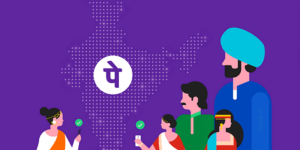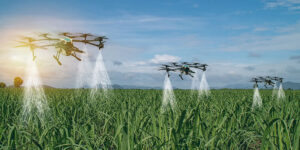“It is very difficult to say whether I found rice or rice found me. One day, while having a meal, I noticed that rice dominates the plate; everything else is in smaller portions. It showed that rice is a very big market,” said Dhanraj H Kidiyoor, Founder and CEO, PWIP Foodtech, sharing the inception story of his company at a panel discussion at TechSparks 2023 Mumbai edition.
“I started learning about the rice trade and used my previous experience in the export sector to lay the foundation stones for PWIP, a trade line-focused B2B networking platform,” he said, adding that the idea was to first focus on cross-border rice trade, and then work backwards to connect with millers, exporters, and importers from other parts of the world.
Though India’s agritech sector has witnessed a stream of funding, greater adoption of technology, and the emergence of multiple startups in recent years, there is a long way to go. To deep-dive into the sector and understand challenges and opportunities, YourStory hosted a panel discussion on ‘Garden of growth: Nurturing new shoots in India’s agritech industry’ at the Mumbai edition of TechSparks 2023.
The panel featured experts who have digitised the legacy agriculture trade ecosystem to enhance the profitability and efficiency of farming, trading and exporting agricultural products. It included experts like Kidiyoor; Saurabh Agarwal, Founder and CTO, ReshaMandi; and Adarsh Srivastava, Co-founder at DeHaat.
Digitising the legacy agricultural trade ecosystem
After meeting rice millers from different parts of India like Raichur in Karnataka and Burdwan in West Bengal, and interacting with rice importers in different countries like Vietnam, Singapore, and Malaysia, Kidiyoor realised that all the rice trade ecosystem players from farmers to exporters are digitally available.
These stakeholders use online apps like WhatsApp, Facebook, and YouTube for personal use.
“But, can you find a rice exporter or a rice miller on LinkedIn? It’s not just India; rice importers from Singapore or the Middle East also do not use LinkedIn. It was sad to see that these ecosystem stakeholders don’t have an online presence. I saw an opportunity to bring them online and onboard them on our digital platform,” Kidiyoor said.
The rice trade is a legacy business ruled by middlemen. An importer in Singapore often does not know from which mill they are getting rice. “We realised the importance of a platform that not only connects Indian rice farmers, traders, millers, and exporters with importers, but also eliminates the dependency on middlemen, increases profitability, and efficiency of cross-border rice trade. And, PWIP was formed,” the founder said.
With a mission to digitise the $458+ billion global rice trade ecosystem, and empower Indian rice farmers, millers, and traders, PWIP has onboarded over 23,000 users, partnered with more than 200 millers, and enabled 45-plus exporters.
Much like PWIP, ReshaMandi has created a natural fibre trade and networking ecosystem that connects every stakeholder from natural fibre farmers, reelers, weavers, and mills to businesses and retailers. Along with offering a fair market price guarantee and enabling stakeholders to save logistics costs, ReshaMandi’s technology helps farmers ensure 80% lesser crop failures.
Challenges in digitising the ecosystem
DeHaat is building AI-enabled technologies to provide end-to-end solutions and services to India’s farming community. It acts as an online marketplace that provides agricultural products and services to farmers.
Srivastava said when DeHaat was launched in Bihar in 2012, there was hardly any use of technology in the agriculture sector. The founders understood that technology was crucial for integration and scaling, but also realised that technology was not the solution at that time. “So, we started a non-tech company and started onboarding customers with a pen and paper,” he said.
On the challenges DeHaat faced, the founder said onboarding farmers was tough. “Farmer acquisition and collaboration were two of the most crucial challenges in that non-tech ecosystem. But, things started changing with the intervention of technology and cheaper internet packages. Soon, we developed AI-enabled technologies to digitise our internal systems and the whole ecosystem,” Srivastava said.
Technology can help farmers grow crops more effectively. Startups like ReshaMandi, DeHaat, and PWIP are not only improving the value chain but also developing AI, ML-powered IoT devices that can result in fewer crop failures.
But, that is not the end. Technology can break down siloes, improving efficiency not only in farming but also in scientifically grading the product and boosting profitability in the entire value chain.
ReshaMandi’s Agarwal said farmers, yarn manufacturers, mills, textiles, and retailers all work to sell the end product to the end customer, but operated in siloes. “There is an information arbitrage in the value chain. That is why we came up with a full-stack app to connect all stakeholders and enable them to communicate and transact.”
ReshaMandi has also created devices that scientifically grade products like silk and cotton.
Agarwal said the mass adoption of smartphones and technological innovations like 4G and 5G have made farmers tech-savvy. Many use apps like WhatsApp and Facebook. “If they can have WhatsApp on their phone, they can also use the ReshaMandi super app. But, we realised that people would use our super app only if we offered additional value over just normal communication,” he said.
How government policies can help agritech bloom
The Indian government is launching agritech and agriculture-friendly policies along with creating an ecosystem where farmers and other agricultural trade ecosystem stakeholders can grow. Resources are aplenty, but many are not accessible to farmers.
Agarwal said, “A lot of research is available from government bodies like JCI but these documents have not been commercialised. The government should find a way, like developing a PPP model, so this research can be commercialised and used by farmers.”
“The government recently announced that Rs70,000 crore would be invested under the PM MITRA scheme to set up mass textile parks across the country. Considering storage and warehouses still remain major problems, the government should launch similar schemes to improve the bottom of the value chain – agriculture,” he added.
While the US and European countries have already started giving huge importance to sustainability and bio-degradable clothing, India is still lagging.
Agarwal said while startups can do a lot better in terms of achieving sustainability goals, the Indian government should also focus on sustainability-focused policies and encourage the use of bio-degradable materials like cotton. “In the end, it will not only benefit farmers but the entire natural fibre supply chain along with the environment,” Agarwal said.











